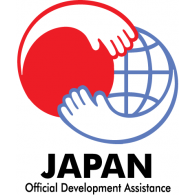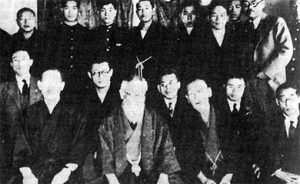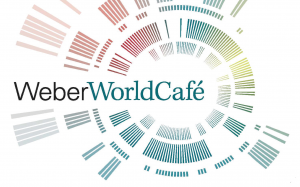Events and Activities
Japanese Development Cooperation as a Political Tool

The world of development cooperation is changing quickly. There are several reasons for this. First of all, the objectives of the Sustainable Development Goals (SDGs) adopted by the United Nations go well beyond poverty reduction. Another reason is the fact that once dominant western thinking in the field of Official Development Assistance (ODA) is fading away as new donors, such as China, are advancing their positions.
In this lecture Marie Söderberg will give a picture of how Japanese foreign aid now plays a central role as a foreign policy instrument. Taking the Philippines as an example, she analyses the implementation of Japan’s 2015 Development Cooperation on the ground.
Naohiro Kitano will contribute his expertise on China’s foreign aid. China’s ODA is undergoing a transformation as China is rapidly stepping up its activities and expanding its influence especially in Southeast Asia.
Speakers:
Marie Söderberg, Stockholm School of Economics
Naohiro Kitano, Waseda University
Gemeinsame Bücherausstellung:
Kabuki・Bunraku

Wie wird die klassische japanische Bühnenkunst im Ausland gesehen und welche Forschung gibt es dazu?
Die International House of Japan Library, die Bibliothèque de la Maison franco-japonaise sowie die Bibliothek des Deutschen Instituts für Japanstudien geben im Rahmen einer gemeinsamen Bücherausstellung Einblicke in englisch-, französisch- und deutschsprachige Übersetzungen sowie Forschungsliteratur zum Thema Kabuki und Bunraku.
Picture Copyright: 国立博物館所蔵品統合検索システム
space AGE space – Elderly Care in a Digitally Connected World

How can sensor technology and connectivity support care-taking? How far are we away from implementation? Which countries are taking the lead? What major obstacles need to be overcome?
A central part of Society 5.0 – Japan’s vision of fully digitally connected future – focuses on how connectivity, big data and AI can contribute to solve Japan’s pressing problems in the field of elderly care. Prof. Thomas Bock, a leading German engineer in the field of building robotics, and Prof. Shuichi Matsumura, a leading Japanese engineer specializing in system design for housing and urban spaces, will talk about the potential of the digital revolution for elderly care in living environments.
Speakers:
Thomas Bock, Technical University of Munich
Shuichi Matsumura, The University of Tokyo
Tokyo as Fashion Space: Usage Practices, Social Space and Media Discourse

For the world of street fashion, the seemingly small neighborhood of Harajuku has become a nationally as well as internationally renowned hotspot where all kinds of trends are shaped and reinterpreted every day. Harajuku also is a prime example of how social attribution processes work within a city: If popular discourse had not defined and named the area, it would only exist as Shibuya-ku Jingūmae and Takeshita dōri or Cat Street would only be nameless roads.
The aim of this research is to explore how this small piece of land came to be recognized as a fashion space from the early 1970s onwards and how it has continued to attract creatives and shoppers alike, even in a fashion world that has seemingly shifted to location-indifferent online media.
Speaker:
Jana Katzenberg, University of Cologne
Picture Copyright: CC BY-NC-ND 2.0 | flickr/jun560
Informal Figures of Japanese Imperialism: the political activism of the Gen’yōsha

The history of Japanese nationalism and expansionism remains a controversial part of the nation-building process in postwar Japan. Many historians have struggled to come to terms with the ambivalent role of the past in the processes of modern nationalism and imperialism. In this respect, the history of the Meiji era is particularly controversial.
This talk will focus on the political association Gen’yōsha and its members during the 1868-1910 period. It will show how the association was an integral part of the Freedom and People’s Rights Movement and its spearhead in the Kyūshū region. After presenting the historical process that led to the foundation of the Gen’yōsha, it will explain how the group played an instrumental role in the uprising of the so-called tairiku rōnin, and how these political activists where important elements of Japan’s expansionist policies.
Picture: Public Domain | wikimedia
AI/IOT and the Future of Society

The workshop brings together scholars and researchers from Japan, Germany and the U.S. to discuss a social science research agenda in the face of the oncoming digital revolution, i.e., the arrival of the internet-of-things, with artificial intelligence, ubiquitous sharing, autonomous systems, and the so-called Industry 4.0, Society 5.0 and Life 3.0.
So far, futuristic visions of the implications associated with digital connectivity, big data and AI have been mostly the bailiwick of engineers and science fiction authors. The social sciences are only just now beginning to seriously consider the subject matter.
WeberWorldCafé: Demographic Change – Challenges and Answers for Local Communities

Many modern societies are increasingly confronting demographic change, i.e. the ageing and shrinking of population. This is particularly true for Japan and Germany, which are the worldwide “front-runners”. The social, economic and political implications are most strongly and directly felt at the level of local communities.
The idea of the WeberWorldCafé on “Demographic Change – Challenges and Answers for Local Communities” jointly conceived and organized by the German Institute of Japanese Studies (Tokyo) and the Institute of Gerontology at the Technical University of Dortmund is to bring together researchers, policy makers and civic society representatives with proven expertise in local demographic policies from Germany, the EU and Japan, to discuss how local communities can best prepare to cope with the demographic challenge.
German Prisoners of War in Japan 1914-1920: towards a new narrative

In 2014 the 100th anniversary of the outbreak of the First World War was globally remembered in academic and public functions, in lectures, exhibitions, and publications. The centenary in itself demonstrated a rejection of the prevailing narratives of the First World War and smoothed the way for alternative points of view. In the memory culture of the First World War also Japan takes its part since it entered the war in 1914 against the German Reich and was represented in Versailles in 1919 as one of the victorious powers.
As far as the German-Japanese relations are concerned, however, a major point of interest are the German prisoners of war who were taken captives by the Japanese in November 1914 after having defended Tsingtao for three months. In the context of German-Japanese relations they are taken up time and again. In the wake of the centennial of the First World War historical science is at present revising earlier conceptions of the historiography of the First World War. With the exception to the last major study on the subject by Ulrike Klein (Freiburg, 1993), however, research on the German POWs interned in Japan during World War I has never moved beyond a biased and euphemistic conception of German captivity in Japan.





 Open Access
Open Access
